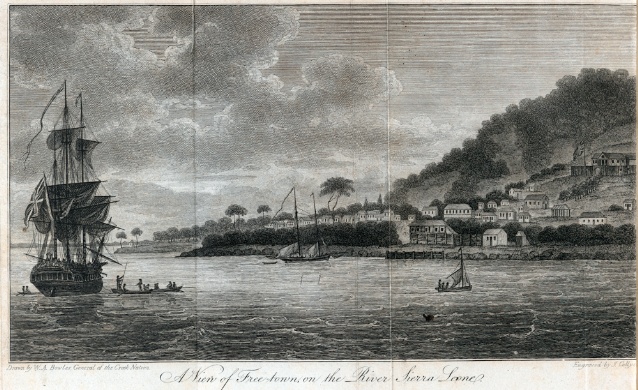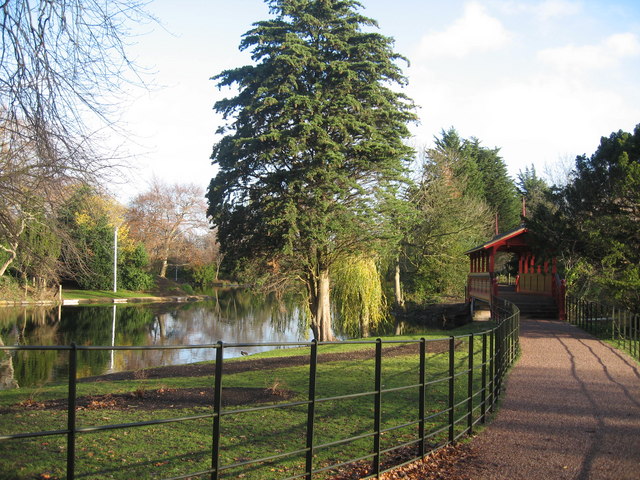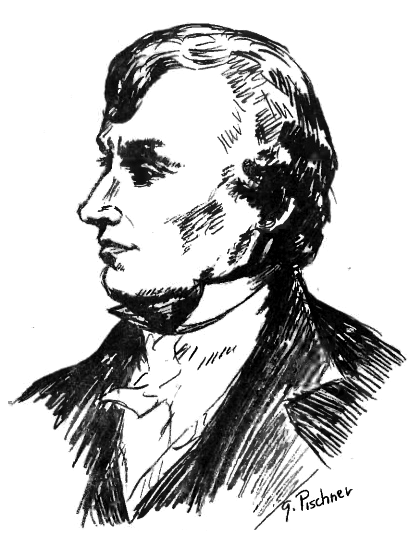|
Raphael Morgan
Robert Josias "Raphael" Morgan (c. 1866 - July 29, 1922) was a Jamaican-American who is believed to be the first Black Eastern Orthodox priest in the United States. After being active in other denominations, including the AME Church, Church of England, and the Episcopal Church, Morgan converted to Orthodoxy. He was ordained as an Orthodox priest of the Ecumenical Patriarchate. He was designated as "Missionary ( el, Ιεραποστολος) to America and the West Indies." He claimed to have founded the "Order of Golgotha", but the Orthodox Church is not organized into orders. As a young man he had traveled in the Caribbean and to the United States, where he became a minister in the AME Church, the first independent black denomination in the US. He next traveled to England, and joined the Church of England and began religious studies. He returned to the US, where he was ordained in 1895 after a period as a deacon in the Episcopal Church. He continued studies and worked in ... [...More Info...] [...Related Items...] OR: [Wikipedia] [Google] [Baidu] |
Jamaican-American
Jamaican Americans are an ethnic group of Caribbean Americans who have full or partial Jamaican ancestry. The largest proportions of Jamaican Americans live in South Florida and New York City, both of which have been home to large Jamaican communities since the 1950s and 60s. There are also communities of Jamaican Americans residing in Connecticut, Georgia, New Jersey, Pennsylvania, Maryland, Massachusetts, and California. The vast majority of Jamaican Americans are of black African-Caribbean descent, and many are also some of full or partial Indian Jamaican, Chinese Jamaican, European and Lebanese descent. Historical immigration After 1838, European colonies in the Caribbean with expanding sugar industries imported large numbers of immigrants to meet their acute labor shortage. Large numbers of Jamaicans were recruited to work in Panama and Costa Rica in the 1850s. After slavery was abolished in the United States in 1865, American planters imported temporary workers, cal ... [...More Info...] [...Related Items...] OR: [Wikipedia] [Google] [Baidu] |
Freetown
Freetown is the capital and largest city of Sierra Leone. It is a major port city on the Atlantic Ocean and is located in the Western Area of the country. Freetown is Sierra Leone's major urban, economic, financial, cultural, educational and political centre, as it is the seat of the Government of Sierra Leone. The population of Freetown was 1,055,964 at the 2015 census. The city's economy revolves largely around its harbour, which occupies a part of the estuary of the Sierra Leone River in one of the world's largest natural deep water harbours. Although the city has traditionally been the homeland of the Sierra Leone Creole people, the population of Freetown is ethnically, culturally, and religiously diverse. The city is home to a significant population of all of Sierra Leone's ethnic groups, with no single ethnic group forming more than 27% of the city's population. As in virtually all parts of Sierra Leone, the Krio language of the Sierra Leone Creole people is Freetown's ... [...More Info...] [...Related Items...] OR: [Wikipedia] [Google] [Baidu] |
Academic Audit
In academia, an audit is an educational term for the completion of a course of study for which no assessment of the performance of the student is made nor grade awarded.flinders.edu.au Retrieved on 8 March 2010. Some institutions may record a grade of "audit" to those who have elected not to receive a letter grade for a course in which they are typically awarded. In this case, 'audit' indicates that the individual merely has received teaching, rather than being evaluated as having achieved a given standard of knowledge of the subject. The term 'audit' is Latin, translating as, 'he/she hears'. In other words, the audit student has experienced the course, but has not been assessed. Some students audit a class merely for enjoyment, including purposes of self-enrichment and academic ... [...More Info...] [...Related Items...] OR: [Wikipedia] [Google] [Baidu] |
King's College London
King's College London (informally King's or KCL) is a public research university located in London, England. King's was established by royal charter in 1829 under the patronage of King George IV and the Duke of Wellington. In 1836, King's became one of the two founding colleges of the University of London. It is one of the oldest university-level institutions in England. In the late 20th century, King's grew through a series of mergers, including with Queen Elizabeth College and Chelsea College of Science and Technology (in 1985), the Institute of Psychiatry (in 1997), the United Medical and Dental Schools of Guy's and St Thomas' Hospitals and the Florence Nightingale School of Nursing and Midwifery (in 1998). King's has five campuses: its historic Strand Campus in central London, three other Thames-side campuses (Guy's, St Thomas' and Waterloo) nearby and one in Denmark Hill in south London. It also has a presence in Shrivenham, Oxfordshire, for its professional mi ... [...More Info...] [...Related Items...] OR: [Wikipedia] [Google] [Baidu] |
Birkenhead
Birkenhead (; cy, Penbedw) is a town in the Metropolitan Borough of Wirral, Merseyside, England; historically, it was part of Cheshire until 1974. The town is on the Wirral Peninsula, along the south bank of the River Mersey, opposite Liverpool. At the 2011 census, it had a population of 88,818. Birkenhead Priory and the Mersey Ferry were established in the 12th century. In the 19th century, Birkenhead expanded greatly as a consequence of the Industrial Revolution. Birkenhead Park and Hamilton Square were laid out as well as the first street tramway in Britain. The Mersey Railway connected Birkenhead and Liverpool with the world's first tunnel beneath a tidal estuary; the shipbuilding firm Cammell Laird and a seaport were established. In the second half of the 20th century, the town suffered a significant period of decline, with containerisation causing a reduction in port activity. The Wirral Waters development is planned to regenerate much of the dockland. Toponymy The ... [...More Info...] [...Related Items...] OR: [Wikipedia] [Google] [Baidu] |
Deacon
A deacon is a member of the diaconate, an office in Christian churches that is generally associated with service of some kind, but which varies among theological and denominational traditions. Major Christian churches, such as the Catholic Church, the Oriental Orthodox Churches, the Eastern Orthodox Church, the Scandinavian Lutheran Churches, the Methodist Churches, the Anglican Communion, and the Free Church of England, view the diaconate as an order of ministry. Origin and development The word ''deacon'' is derived from the Greek word (), which is a standard ancient Greek word meaning "servant", "waiting-man", "minister", or "messenger". It is generally assumed that the office of deacon originated in the selection of seven men by the apostles, among them Stephen, to assist with the charitable work of the early church as recorded in Acts of the Apostles chapter 6. The title ''deaconess'' ( grc, διακόνισσα, diakónissa, label=none) is not found in the Bible. Ho ... [...More Info...] [...Related Items...] OR: [Wikipedia] [Google] [Baidu] |
Postulant
A postulant (from la, postulare, to ask) was originally one who makes a request or demand; hence, a candidate. The use of the term is now generally restricted to those asking for admission into a Christian monastery or a religious order for the period of time preceding their admission into the novitiate. The term is most commonly used in the Catholic Church, Lutheran Churches, and the Anglican Communion (which includes the Episcopal Church, which uses the term to designate those who are seeking ordination to the diaconate or priesthood. In this respect, postulancy is generally considered the first formal step leading to candidacy and ordination). The Eastern Orthodox Churches uses this term less frequently. Purpose, duration and formation Nuns at a procession in 1915. The postulants in their garbs are walking in front of the professed nuns. The length of time that a prospective candidate remains a postulant may vary depending on the institution, or the postulant's indivi ... [...More Info...] [...Related Items...] OR: [Wikipedia] [Google] [Baidu] |
American Colonization Society
The American Colonization Society (ACS), initially the Society for the Colonization of Free People of Color of America until 1837, was an American organization founded in 1816 by Robert Finley to encourage and support the migration of freeborn blacks and emancipated slaves to the continent of Africa. The American Colonization Society was established to address the prevailing view that free people of color could not integrate into U.S. society; their population had grown steadily following the American Revolutionary War, from 60,000 in 1790 to 300,000 by 1830. Slaveowners feared that these free Blacks might help their slaves to escape or rebel. In addition, many white Americans believed that African Americans were an inferior race, and, therefore, should be relocated to a place where they could live in peace, a place where they would not encounter prejudice, a place where they could be citizens. The African American community and the abolitionist movement overwhelmingly oppos ... [...More Info...] [...Related Items...] OR: [Wikipedia] [Google] [Baidu] |
Bishop
A bishop is an ordained clergy member who is entrusted with a position of authority and oversight in a religious institution. In Christianity, bishops are normally responsible for the governance of dioceses. The role or office of bishop is called episcopacy. Organizationally, several Christian denominations utilize ecclesiastical structures that call for the position of bishops, while other denominations have dispensed with this office, seeing it as a symbol of power. Bishops have also exercised political authority. Traditionally, bishops claim apostolic succession, a direct historical lineage dating back to the original Twelve Apostles or Saint Paul. The bishops are by doctrine understood as those who possess the full priesthood given by Jesus Christ, and therefore may ordain other clergy, including other bishops. A person ordained as a deacon, priest (i.e. presbyter), and then bishop is understood to hold the fullness of the ministerial priesthood, given responsibility b ... [...More Info...] [...Related Items...] OR: [Wikipedia] [Google] [Baidu] |
Samuel David Ferguson
Samuel David Ferguson (January 1, 1842 – August 2, 1916) was an African American clergyman in Liberia. He was the first African American to be elected as a bishop of the Episcopal Church in Liberia. Biography Samuel David Ferguson was born in Charleston, South Carolina, on January 1, 1842. He moved with his family to Liberia when he was six years old. He was ordained a deacon on December 28, 1865, and a priest on March 15, 1868. He was consecrated as bishop on June 24, 1885, (Saint John the Baptist's Feast Day) at Grace Church, New York, becoming the first black member of the House of Bishops. He married Mary Leonora Montgomery. As Missionary Bishop of Liberia, he founded what is now Cuttington University. Ferguson also established the Bromley Mission School, Liberia, Bromley Mission School. One of his protégés, Raphael Morgan, became an Episcopal priest in the United States but ultimately converted to the Russian Orthodox Church. Ferguson remained in Liberia until his deat ... [...More Info...] [...Related Items...] OR: [Wikipedia] [Google] [Baidu] |
Lay Reader
In Anglicanism, a licensed lay minister (LLM) or lay reader (in some jurisdictions simply reader) is a person authorised by a bishop to lead certain services of worship (or parts of the service), to preach and to carry out pastoral and teaching functions. They are formally trained and admitted to the office, but they remain part of the laity, not of the clergy. History Ancient office of reader From the third century the office of reader (or lector) became recognised as one of the minor orders of the clerical state. Candidates for ordained ministry (as deacons and priests) were first admitted to the sequence of minor orders, including that of lector or reader. The minor orders have been largely absent from the Anglican Church since the Reformation (with some localised exceptions) and in the Roman Catholic Church they have also been suppressed. However, the "ministry of reader" (in the Roman Catholic Church) and the office of reader or lay reader (in the Anglican Church) represent ... [...More Info...] [...Related Items...] OR: [Wikipedia] [Google] [Baidu] |
Jamaican Maroons
Jamaican Maroons descend from Africans who freed themselves from slavery on the Colony of Jamaica and established communities of free black people in the island's mountainous interior, primarily in the eastern parishes. Africans who were enslaved during Spanish rule over Jamaica (1493–1655) may have been the first to develop such refugee communities. The English, who invaded the island in 1655, continued the importation of enslaved Africans to work on the island's sugar-cane plantations. Africans in Jamaica continually resisted enslavement, with many who freed themselves becoming maroons. The revolts disrupted the sugar economy in Jamaica and made it less profitable. The uprisings decreased after the British colonial authorities signed treaties with the Leeward Maroons in 1739 and the Windward Maroons in 1740, which required them to support the institution of slavery. The importance of the Maroons to the colonial authorities declined after slavery was abolished in 1838. ... [...More Info...] [...Related Items...] OR: [Wikipedia] [Google] [Baidu] |







_10_Bishop_S.D._Ferguson.jpg)

